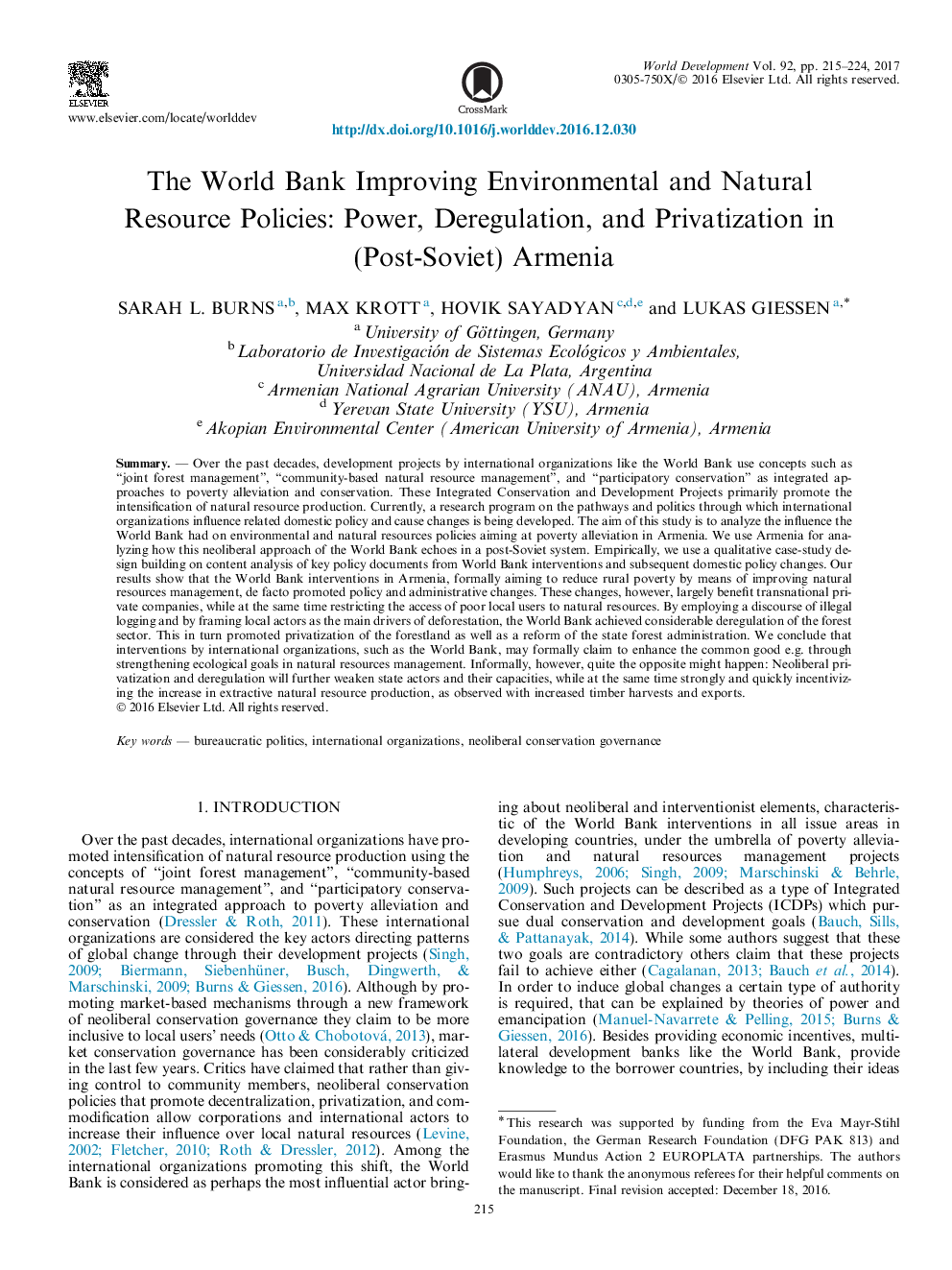ترجمه فارسی عنوان مقاله
بانک جهانی بهبود سیاست های زیست محیطی و منابع طبیعی: قدرت، محدودیت و خصوصی سازی در (ارمنستان پسا شوروی)
عنوان انگلیسی
The World Bank Improving Environmental and Natural Resource Policies: Power, Deregulation, and Privatization in (Post-Soviet) Armenia
| کد مقاله | سال انتشار | تعداد صفحات مقاله انگلیسی |
|---|---|---|
| 87328 | 2017 | 10 صفحه PDF |
منبع

Publisher : Elsevier - Science Direct (الزویر - ساینس دایرکت)
Journal : World Development, Volume 92, April 2017, Pages 215-224
ترجمه کلمات کلیدی
سیاست بوروکراتیک، سازمان های بین المللی، حکومت حفاظتی نولیبرالی،
کلمات کلیدی انگلیسی
bureaucratic politics; international organizations; neoliberal conservation governance;

